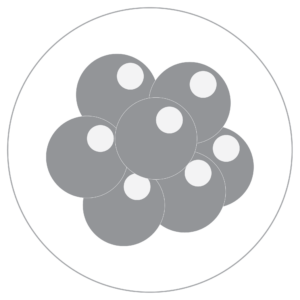
The various research groups in the Developmental, Regenerative, & Stem Cell Biology (DRSCB) Program study problems in embryonic development and cell and tissue differentiation in a variety of model systems, ranging from vertebrates such as fish and mice to invertebrate such as Drosophila and C. elegans as well as stem cell and reprogramming models. Genetic (both classical and molecular), genomics, cell biological, immunological, and biochemical approaches are utilized to elucidate the molecular mechanisms that underlie many key processes of development and diseases. Research areas include embryo and tissue organization, cell-cell and cell-matrix interactions, and control of cell fate, differentiation, tissue specific gene expression, and pattern formation.
DBBS offers a student-driven course of study that is a flexible, personalized learning pathway designed and led by the student, with oversight and guidance by faculty and staff. This model entrusts and empowers students to take ownership of their education by identifying their academic interests, setting learning goals, and curating a curriculum that aligns with their intellectual passions and career aspirations.
Prospects: Learn more >>>
Current DBBS students: more details here

DRSCB graduates pursue a variety of careers. Most program graduates go into academia, but many find paths in industry, government, and other fields, like science communication, law, and business and entrepreneurship.
Faculty Co-Directors:
Graduate Program Administrator: